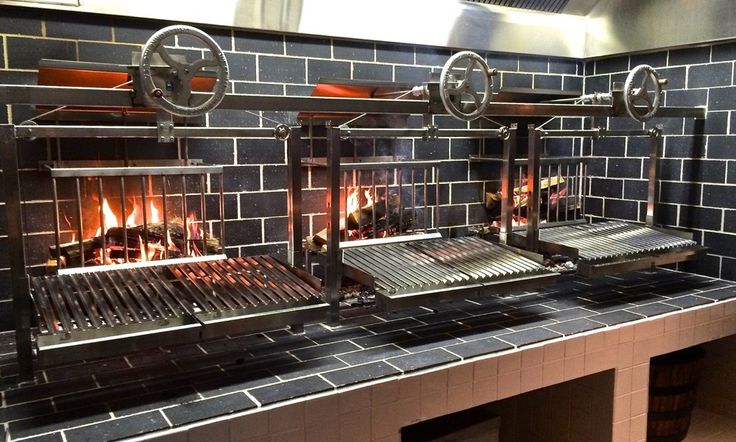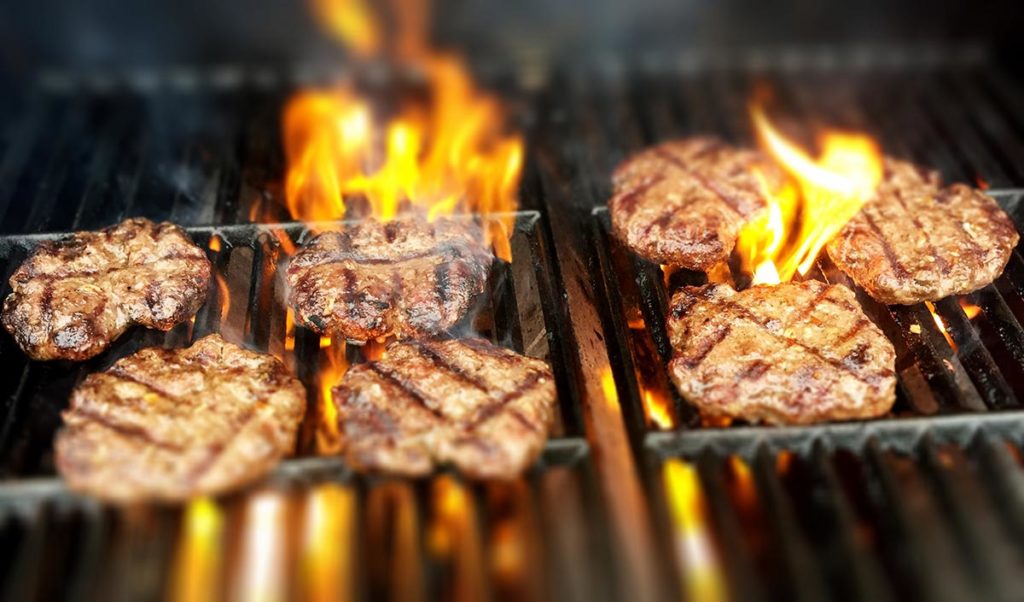“Grilling is a cooking method, typically red meat and vegetables such as onions or potatoes, over hot charcoal or direct heat from gas burners. Grilling may also include using a marinade to flavour the food with smoke and create a surface that tastes good. The term “barbecue” is most often used about this specific method.”
This article discusses the different grills like gas grills, charcoal grills teppanyaki grills, etc. available on today’s market, ranging from charcoal to electric options with various features.
Type #1: Gas Grill
This type of grill uses liquefied petroleum (LP) gas. It generally comes with a gas line hooked up to a propane tank outside the house. Most modern grills have additional burners ignited with a push of a button or an electric igniter.
Type #2: Charcoal Grill
This type of grill is generally very similar in appearance and function to what most people imagine when thinking about “grill.” These types use charcoal briquettes for fuel, which provide heat from the bottom and above, where food sits on a grate. It is generally easier to regulate temperature using this type of grill than with other choices because you can control airflow more easily. Available models vary greatly depending on size and cylindrical shape or flat rectangular plate-like shape.
Type #3: Pellet Grill
A pellet grill is similar to a charcoal grill because it has a fuel source for cooking. These are generally powered by electricity, although some have propane tanks instead. The main difference between these grills and other options is the “pellets” used as an energy source. These pellets are small, cylindrical pieces of compressed sawdust made from different types of hardwood. Compared to traditional charcoal briquettes, they burn cleaner and regulate heat more efficiently, according to information listed on cabelas.com. Many people think this type of grill produces superior flavour due to the pellets’ controlled temperature settings and burning process.

Type #4:Offset Smoker
This type of grill is used for low-heat smoking and indirect cooking or roasting. It is called an offset smoker because the firebox containing charcoal, wood, oil, or gas sits off one side. The food goes on a shelf on the other side. These are generally cylindrical with doors for accessing shelves inside where vegetables or chicken can be placed.
Type #5: Barrel Grill
Barrel grills are long metal cylinders with short legs, often round at both ends. They have vents along their length so air can circulate while burning charcoal briquettes underneath your meat source for cooking. You place your food directly over the flame or use a rack to place your food source above the flame.
Type #6: Portable Grill
A portable grill is typically small and can easily be carried with one hand because it lacks the bulk of other grills. They are generally designed to cook smaller quantities of food, but you could use them for large meals if you have enough fuel sources. These grills cannot be connected to gas lines because they are not stationary; they are meant to go wherever you go. Be careful when purchasing a product classified as a “portable” grill—some may only be designed for specific purposes, which should not include cooking over an open flame.
Type #7: Tandoor Ovens
Tandoor ovens, also known as tandoors, are cylindrical ovens that look like barrels. They can be used to roast vegetables and meats in a very hot atmosphere—upwards of 500 degrees Fahrenheit. These ovens utilize charcoal briquettes to create the high temperatures needed for roasting.
Type #8: Teppanyaki Grills
Teppanyaki grills are flat surfaces with either gas or charcoal as a heat source. These grills usually have an iron surface to help food stick less and make the cooking process faster. Many teppanyaki grills double as conveyor belt style sushi restaurants, where guests sit at a bar surrounding the grill and order rolls the chef cooks directly in front of them on their grill top!
